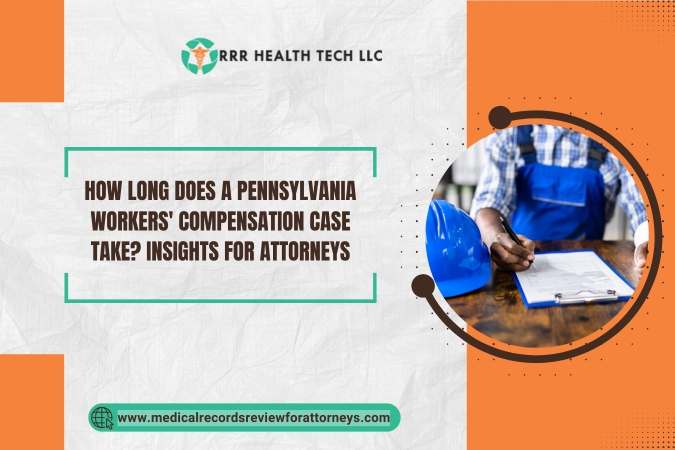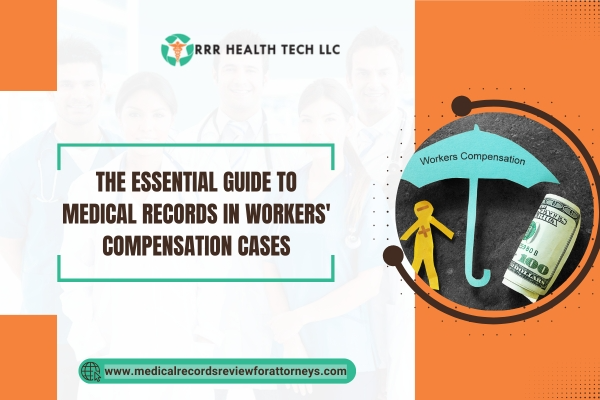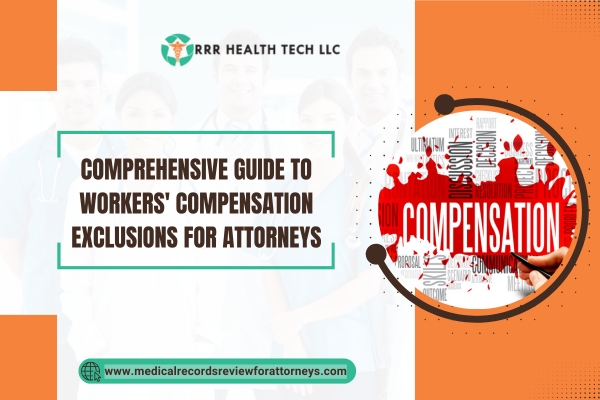
Introduction
Lawyers and their clients are often faced with the difficulty of understanding Pennsylvania’s workers compensation cases. Grasping the schedule of these cases is important for appropriate case handling as well as campaigning management. This paper describes different stages of a Pennsylvania workers compensation case, factors that affect how long it will take, and how medical record reviews can facilitate the process.
Overview of Workers Compensation in Pennsylvania
What is Workers Compensation?
It is a type of insurance that gives employees who are injured while working some replacement wages and medical benefits. Such claims in Pennsylvania are administered under the Workers’ Compensation Act which allows injured employees to receive support but at the same time, safeguards the employers from lawsuits.
Key Benefits of Workers Compensation
• Medical Benefits: Payment for health bills associated with the injury.
• Wage Loss Benefits: Payment for income loss that results from the time it takes to heal.
• Vocational Rehabilitation: Help for individuals who can no longer go back to their previous position.
The Workers Compensation Process in Pennsylvania
Step 1: Report the Injury
After sustaining any injury, employees are required to inform their employer within the bounds of the law. In Pennsylvania, this needs to be done within a period of 120 days if compensation benefits are to be claimed.
Step 2: Employer’s Action
Once the employer receives the injury report, they have 21 days to respond to the claim. The employer can either accept or deny the claim. If the claim is accepted, the employer shall commence with providing the required benefits. If it is denied, then the employee reserves the right to contest the decision.
Step 3: Contested Claim Application
In cases where the claim is denied, the employee is required to file a claim petition with relevant authorities – in this case, the Pennsylvanian Department of Labor and Industry. The amount of time needed for the claim to be sanctioned would vary according to the complexity of the case.
Step 4: Medical Record Review
This step involves reviewing clinical and medical records. This is one of the most significant steps towards achieving an effective process of workers compensation for which everything has to be documented so that it can aid in determination. This step can sometimes be utilized to assess the extent of damage caused to assess the impact on the employee’s capacity to work. Attorneys can employ services that provide medical record reviews to achieve this step in the most efficient manner.
Step 5: Hearings and Appeals
In the event of a dispute with the claim, Hearings can be set. The complexity of the case and the scheduling availability of the Workers Compensation Judge can change the duration of this step. A party that is not content with the decision can appeal against it to the Workers’ Compensation Appeal Board.
Step 6: Final Decision and Benefits Distribution
After dealing with all hearing and appeals, the workers’ compensation judge will make a decision on the case. Whenever the claim is accepted, benefits are given as per the timeline set for distribution.
Factors Influencing the Duration of Workers Compensation Cases
Complexity of the Case
The resolutions of issues that have more than one injury or pre-existing conditions pertaining to insurance claims are likely to take longer. A case with greater level of intricacy is going to take longer in investigations and staffing hearings.
Medical Record Review Process
The number of days the case takes to settle rests on the effectiveness of the medical record review process. The case can become time consuming because of troubles such as waiting for the receipt of the medical records, the evidence that needs to be presented, and recorded discrepancies. Medical attorneys might want to consider working with medical record review companies to speed up this portion.
Availability of Medical Experts
An expert testimony may be needed at times to gauge the level of the injury as well as the capacity of the employee’s work capability. Coordination with these specialists does contribute delays in the overall time allocation.
Legal Representation
The work can get done quicker with adequate legal representation. Attorneys that have experience working and are knowledgeable in workers’ compensation in the state of Pennsylvania are more likely to cut through the issues and complexities faster and save time in the process.
Case Studies
Case Study 1: The Construction Accident
Overview of The Case: During a construction activity, a worker suffered severe back pain after the employee fell off the scaffolding.
Challenges: The employer refused the claim arguing there is no evidence that the individual’s injury was sustained in the course of employment.
Solutions: The attorney’s review of claim revealed that the client had undergone back pain treatment including a surgery, which was necessary. It required strong medical evidence that the injury was indeed work related. Expert testimony was needed.
Case Study 2: The Warehouse Injury
Overview of The Case: An employee of a warehouse injured his/her wrist while operating a heavy duty machine.
Challenges: The employer objected the claim on the basis that the injury was not work-related and rather such a condition was pre-existing.
Solutions: The lawyer made use of medical records review services in order to collect detailed information from the patient’s file, demonstrating that the injury while working was aggrieved. This involved taking expert evidence on the consequential impacts of repetitive strain injuries as well.
Conclusion
For counsel representing clients in Pennsylvania workers compensation, understanding the chronology of events and timelines for each case is crucial to managing expectations due to the complexities involved in the legal processes. Nevertheless, they can obtain a medical record review which will make it possible for them to have all the materials necessary for the clients’ claim. The workers’ comp system is nuanced, and by understanding modern best practices and available information, lawyers will be able to cater to their clients’ needs more effectively.


